From grief to good: How maker spaces help family honor child lost to cancer
It took years for Noelle Conover, her husband and their children to see their way through grief over loss of their son Matthew, who died in 2002 from non-Hodgkins lymphoma at just 12 years old.
"You don't get over it," she said. "You get through it, and that's what we had to do."
Matthew was a tinkerer, a kid who loved LEGOs but never made what was on the box, instead thinking outside it and imagining new and unique creations from the plastic blocks. But more than a builder of bricks, Matt, his mother said, was "a connector kind of kid, someone who had a lot of friends, and he was always trying to get everyone to get along.
"He was the kind kid, and also very much a maker kid, before that term was being used."
Now his mom is forging connections in his name, helping other kids learn using LEGOs, creating spaces for other tinkerers and thinkers and bringing Matt's Maker Spaces to schools, libraries and other places in Pennsylvania.
After their youngest child graduated from high school in the Mount Lebanon School District, just outside Pittsburgh, the Conovers asked how they could pay forward the love they'd been shown during the hardest time of their lives.
The school's principal asked whether the Conovers knew anything about maker spaces.
"The more we talked about it, the more Matthew's face appeared in our minds," Conover said. "They were describing my husband (an engineer) and Matt. It was like an aha! moment for us."
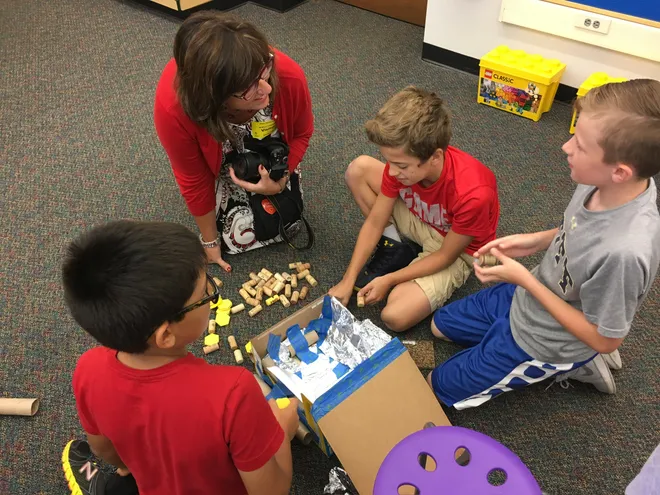
Mister Rogers and maker spaces
A maker space s a dedicated place for collaboration, learning and discovery, according to makerspaces.com, often inside a school or library. They can be equipped with technology such as 3D printers, computers, laser cutters, soldering irons and power tools, or with low-tech materials such as building blocks, clay, sewing machines or woodworking materials − or can have a combination of resources.
Maker spaces are an outgrowth of the Maker Movement (which took off in 2005 with the initial publication of Make magazine, according to the International Society for Technology in Education), a way for people to come together to share ideas, tools and materials in the creative process. They've gained popularity in education as part of a movement toward project-based learning.
"More than anything, the learning landscape matters," said Gregg Behr, executive director of the Grable Foundation, a Pittsburgh-based educational nonprofit whose grants have helped bring Matt's Maker Spaces to schools, hospitals and libraries in Western Pennsylvania.
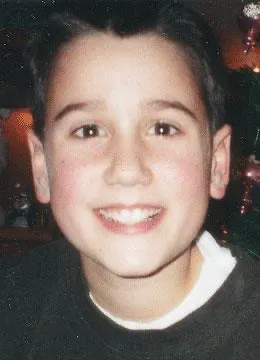
Remake Learning, a network of educators and innovators in the region which is supported in part by the Grable Foundation, works to build out new, non-traditional places to foster learning, Behr said, in the spirit of one of the Pittsburgh region's most famous people.
"Mister Rogers understood all the different places where we can learn, and this network is building out that real-life neighborhood, connecting what happens in schools with what happens in parks, gardens and other public spaces to create a region that celebrates curiosity and helps (children) power their own interests."
A mom and 'an inspiration'
Behr met Noelle Conover and heard her family's story, and they discussed ways to, well, make the maker spaces a reality.
"She's an amazing person," he said, calling her "an inspiration."
"We were in a position to award a grant to set them off on this journey, and now they've built dozens of maker spaces. It's been joyful to watch the trajectory, they way they've connected teachers, families and kids."
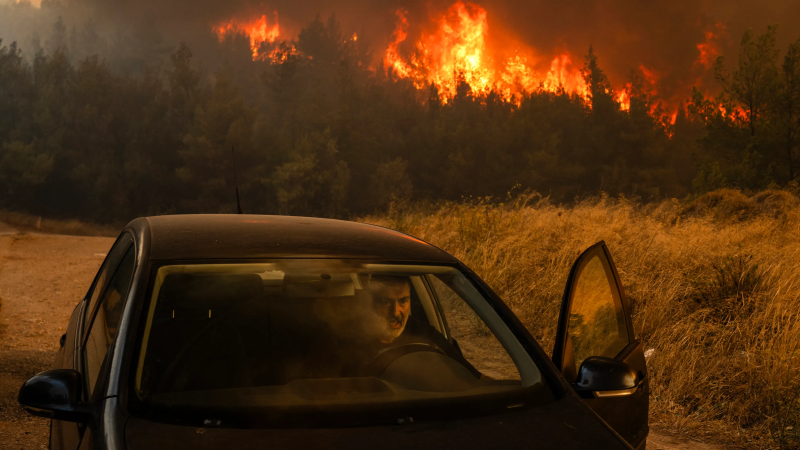
Anne Fullenkamp, senior director at the Children's Museum of Pittsburgh's Center for Creative Experiences, works with teachers and students to design the spaces in a way that's student-led. The first maker spaces were in seven Mount Lebanon District schools, Conover said, and as the word spread, Matt's Maker Spaces were designed for schools, libraries, the hospital where Conover works and where Matt was treated, and even a mental health facility for adults.
Plans are in the works for the 50th Matt's Maker Space, she said.
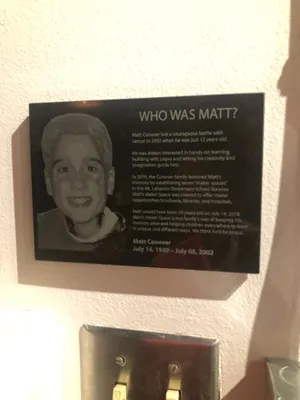
The maker spaces help students "find their passion through personalized learning," said Emily Sanders, assistant superintendent with the Beaver Area School District. They can create, test, fail, retry and develop their own products in a safe, nurturing way. The school is in the process of developing an online marketplace for kids to sell their creations.
"It ties what they’re learning, and helps with career readiness skills, like running a business, communicating, collaborating, design skills, marketing and advertising. There are so many relatable and job-required skills that kids are learning at an earlier age."
Failing forward, and learning along the way
Bridget Belardi, a K-5th grade educator and librarian in the Mount Lebanon School District, taught Matt Conover's younger brother and has known the family for years.
Kids know they're not being graded in the same way during maker sessions as they are in a traditional classroom setting, Belardi said: "The kids like it because they're not being asked to perform in the same way. They demonstrate softer skills like teamwork, problem-solving, analyzing data, creativity."
It's also a way to draw out students who might be harder to engage, she said.
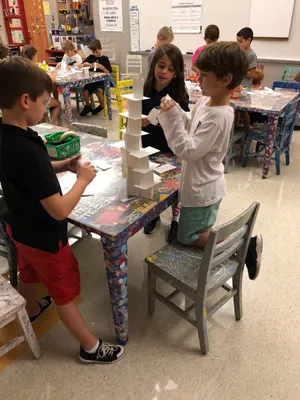
"It's a more level playing field" for introverted students or special education students, "and they feel more free to speak up and work in groups. It's a positive atmosphere, and their experiences are different."
The maker space has also been a place where students and teachers can learn together, Belardi said. One student wanted to learn embroidery, so Belardi learned about it as well − demonstrating for all the kids that learning is a lifelong pursuit, not something that ends when traditional schooling does.
"Anything that's hands-on, giving kids chance to actually do something, they will learn faster," she said. "We call it a safe place for mistakes, where they can fail forward and they are able analyze bad outcomes in a way they can’t on, say, a math class."
Belardi said each school year, as students prepare to use the maker space, they also learn about Matt: who he was, what he loved, why his life mattered.
Noelle Conover recalled for USA TODAY how the community wrapped its arms around the family: taking the younger children to practices and functions, bringing them food, showing up in droves at Matt's funeral when it was time for their final goodbye after his 9-month fight ended.
For the Conover family, giving back was their way to feel joy again after a devastating loss, Noelle said: "It was a challenge to remember Matt with smile and not the tragedy and grief we went through."
She works at University of Pittsburgh Medical Children's Hospital as a project manager for its SurvivorConnect program, helping families and survivors of childhood cancer at the place where Matt was treated.
Matt's Maker Spaces is a way for the Conovers to continue healing, she said.
"It was our journey through the grief, and into the good."
Contact Phaedra Trethan by email at ptrethan@usatoday.com, on X (formerly Twitter) @wordsbyphaedra, or on Threads @by_phaedra
Disclaimer: The copyright of this article belongs to the original author. Reposting this article is solely for the purpose of information dissemination and does not constitute any investment advice. If there is any infringement, please contact us immediately. We will make corrections or deletions as necessary. Thank you.





